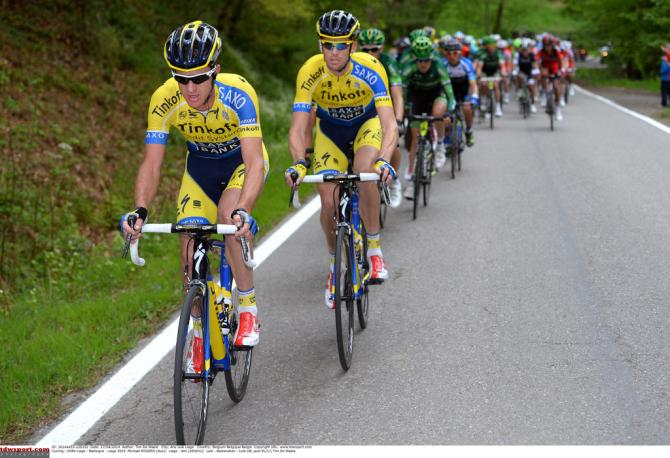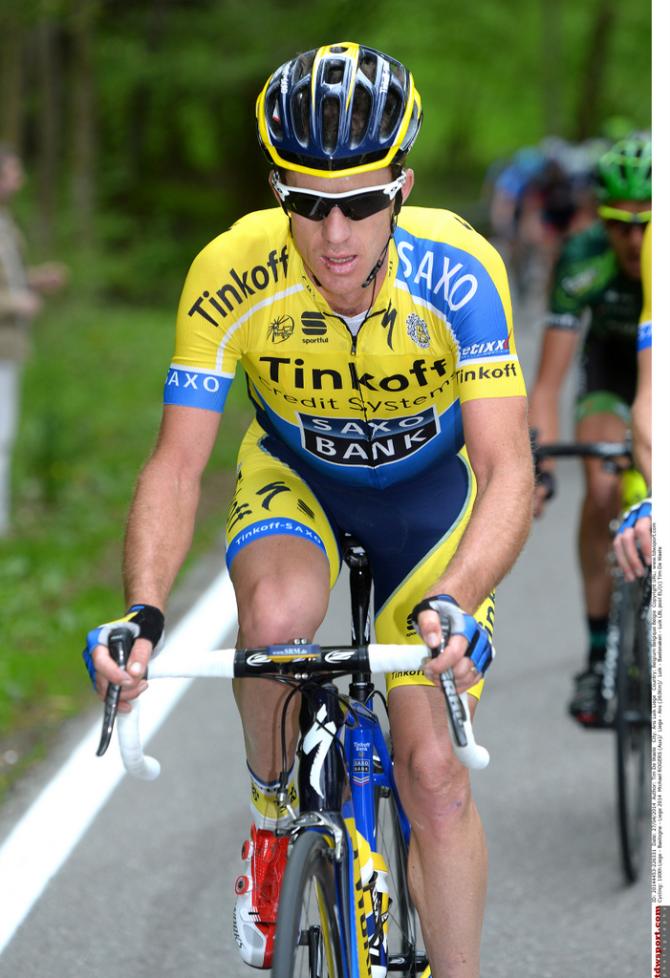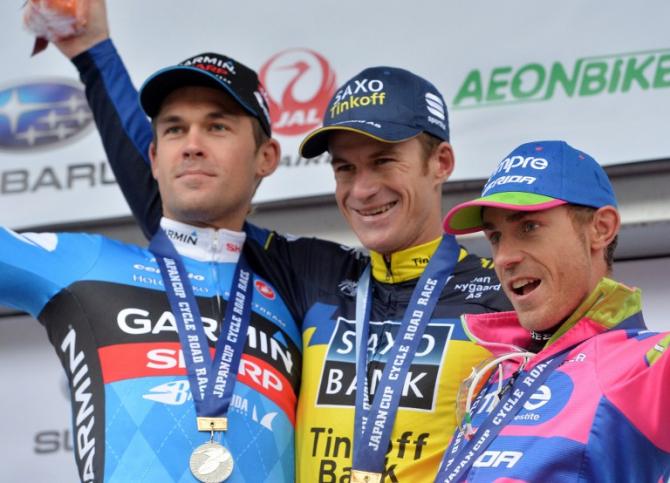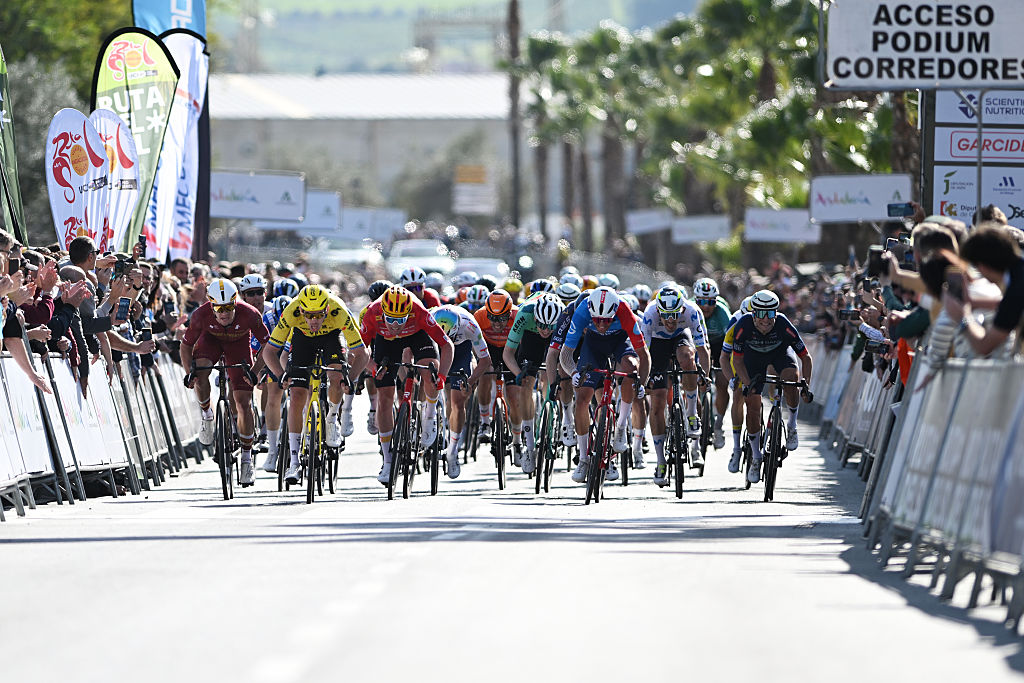Rogers returns to Grand Tour racing at Giro d'Italia
Tinkoff-Saxo pro to use Italian race to find form for Tour
The latest race content, interviews, features, reviews and expert buying guides, direct to your inbox!
You are now subscribed
Your newsletter sign-up was successful



Two weeks after he received the news that he was to get no further sanction after testing positive for clenbuterol at the 2013 Japan Cup, this Friday Michael Rogers will roll down a start ramp in Belfast as part of his team's Giro d’Italia squad.
After a first third of the season in which a provisional suspension kept him out of racing, Rogers (Tinkoff-Saxo) first pinned on a race number in 2014 at Liege-Bastogne-Liege, “the hardest one-day Classic on the calendar,” the 34-year-old points out with a wry grin.
But as he tells Cyclingnews, to be in 100 percent top condition for the Tour de France, where he wants to be once again riding for Alberto Contador as the Spaniard battles for the overall win, hard racing is exactly what he needs to be able to find top form.
“I did 220 kilometres of Liege, died a thousand deaths on La Redoute, but that was the decision we took.” In the Giro, “I’d like to focus on getting through the first part, and keep a little bit in the tank to give me the ability to work hard in the last half, which is where I really need to work for the Tour.”
It’s clear that coming to a Grand Tour with just one day’s racing in 2014, and with his last race the ill-fated Japan Cup last October, is hardly ideal. But the Tinkoff-Saxo rider says he is mentalised to get all the way through to Trieste. “I’d like to make it there, I just need to get that fatigue from racing situations right up high.”
“I just need racing days, really. I’ve done a lot of training, haven’t missed a day there, but the racing condition isn’t really there yet.”
“It’s just getting back into the rhythm of things, there’s nothing better than racing, that’s the best training, you can’t get the levels of fatigue otherwise. So that first half I’ll be taking on the day by day, then we’ll see.”
The latest race content, interviews, features, reviews and expert buying guides, direct to your inbox!
His previous Giro was way back in 2009, when - riding for HTC - he finished eighth overall. He also took part in the 2006 race, but abandoned. Either way, as he sees it, “it’s a nice Grand Tour to do, much less stressful than the Tour, and it’s great to be up here in Belfast too. It’s been a very relaxed start, which is ideal. I’m just glad to be here.”
The decision that he would do the Giro was taken “literally straight away. We had a conference call and it was pretty clear.” He’ll be riding for Nicolas Roche and Poland’s Rafal Majka, seventh in last year’s race.
“I was up in training camp with him [Majka] a couple of weeks ago, I saw he was in good condition there, he might struggle a little in some of the earlier days but then we’ll see how he goes.”
After nearly four months of racing missed, Rogers says he has a point to prove - “that I can still perform well....through the whole ordeal I saw things from a perspective which I’d never been subjected to before. Life goes on, you know, I had to deal with the cards I was given and life goes on, here I am.”
The key to his year, as he sees it “is the Tour, anyway, and I think [team leader] Alberto [Contador] is angry because last year [in the Tour, where Contador was fourth] he didn’t do what he wanted to do, he saw things from a different perspective and he was on the receiving end of what he’s usually handing out and maybe he is better this year because of that.”
The Giro may well be very tough for Rogers at times, with so little racing in his legs this season. But he agrees he is relaxed and ready to roll.
“I’ve been doing this for 14 years, you know, being nervous doesn’t change anything. First of all I am super-happy to be back, and I realise what a fantastic life [as professional bike riders] we have. Not all cyclists always appreciate it and I realise that and I’m happy to be back doing what I love.”
Alasdair Fotheringham has been reporting on cycling since 1991. He has covered every Tour de France since 1992 bar one, as well as numerous other bike races of all shapes and sizes, ranging from the Olympic Games in 2008 to the now sadly defunct Subida a Urkiola hill climb in Spain. As well as working for Cyclingnews, he has also written for The Independent, The Guardian, ProCycling, The Express and Reuters.

